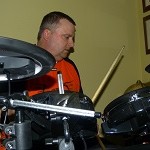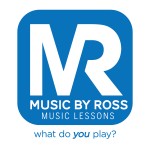Why Take Music Lessons?
(Above is an amazing video that clearly explains the science behind why learning, creating and practicing music is very beneficial to people of all ages. Watch the video – you may be surprised as to how music can benefit many different areas of your life.)
When you first start learning how to play an instrument, holding a note for a couple of beats or hitting a high pitch feels like an amazing achievement. As you practice and become a more experienced musician, making music enjoyable, not only to your ear but to others’ as well, is a very rewarding experience. Taking music lessons from an experienced instructor who knows how to assess individual skill levels, and tailor your lessons to your particular ambitions, will help you meet your goals much faster.
Here are some other ways you can benefit from learning an instrument:
- Studies show that learning an instrument increases self-confidence, memory, and has proven to relieve stress.
- Music lessons have been found to improve how the brain processes the spoken word. This finding could lead to improving the reading ability of children who have dyslexia and other reading problems.
- A study by E. Glenn Schellenberg at the University of Toronto at Mississauga, as published in a 2004 issue of Psychological Science, found an increase in the IQs of six-year olds who were given weekly piano and voice lessons.
- Studies have shown that students who play instruments are often better in math and achieve higher grades in school than students who don’t. Source: Friedman, B. (1959) An evaluation of the achievement in reading and arithmetic of pupils in elementary schools instrumental classes. Dissertation Abstracts International, 20, pp.s 3662-3663.
What Age Is Appropriate to Start Music Lessons?
AGES 5-8
For children, the “right” age to begin music lessons depends largely on attention span and emotional maturity. Most children will begin taking lessons between the ages of 5 and 7. Due to hand-size, piano lessons, violin lessons and singing lessons are most common at this age. Music By Ross offers introductory music lessons for children 6 and under. Introductory lessons are fun, hands-on lessons focused on rhythm, dance, musical terminology, song structure and classical composition. This can be the ideal time in a child’s life to introduce him or her to the creative arts and foster a life-long love for music.
AGES 8 and older
By age 8, most children have grown enough to handle a range of instruments, like the guitar, drums, violin and piano. Children 10 years and older can usually handle any instrument. At this age, children usually have more opportunities to play music through band and orchestra programs at school. Additionally, many children will begin to develop an interest in starting their own band or musical project. Music lessons are very beneficial not only for growing a child’s appreciation for music and fine-tuning their musical knowledge, but also for inspiring long-term disciplinary traits.
ADULTS
Music lessons can start at any age! For adults, it’s never too late to start lessons. Whether your goal is to scratch “Learn to Play Guitar” off your bucket-list or play your favorite songs for someone special, Music By Ross can help every step of the way!
Your First Lesson
Most first lessons begin with an evaluation of your skill level. For beginners, you will learn the basics of your instrument. Knowing the parts of your instrument, the correct way to hold it, and proper care techniques, are important from day one. After that, you’ll dive right in and start becoming the musician you want to be!
What to Have
- You will need your instrument.
- Pen and Paper are a good thing to have at every lesson to note key points of each lesson.
- A recording device, video and/or audio, is helpful. (optional)
- It’s a good idea to have your instrument accessories available, such as: a metronome, footstool, guitar strap, tuner, or reeds.
- If you are taking voice lessons, it is a good idea to have water or pineapple juice available.




